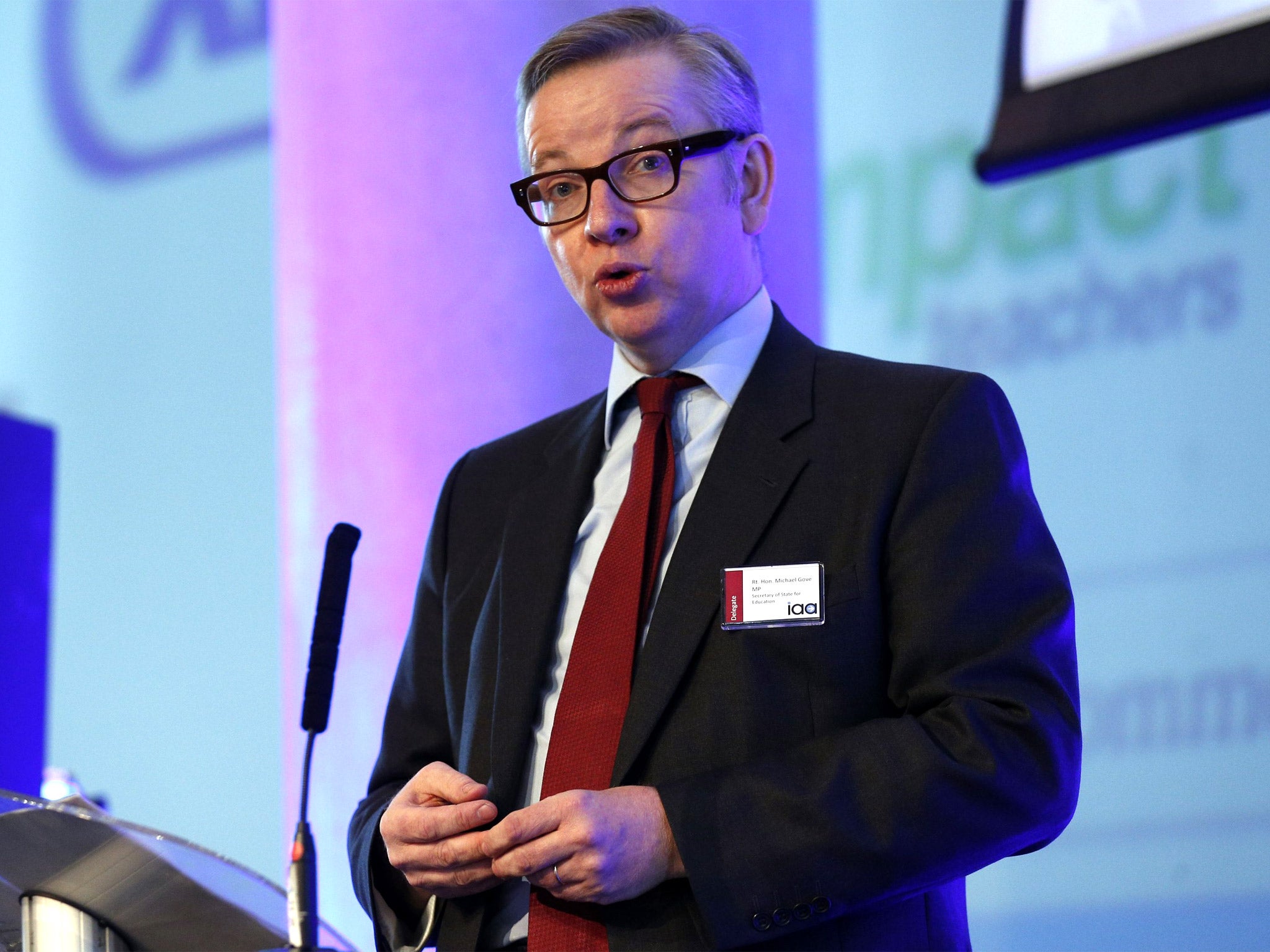How can we have an Education Secretary so hostile to those who work in higher education?
Michael Gove's attacks on academics offer a misleading caricature of our work

Michael Gove has saddened me this week. It is currently my seventh year in some form of higher education. My PhD thesis in philosophy is half-written, and I work hard to earn a shot at an academic job. The chances of finding a position are long, the pay is small, the hours extensive, yet I love teaching and researching. The personal and social benefits of higher education are, to my mind, indisputable. But I have always been aware of how easy it is to feel alienated from unfamiliar disciplines. So it is good to take the time to discuss and explain what I do, and why it is valuable, to those that ask.
But every year it gets worse. Curiosity has segued into hostility, derision, and cynicism. The value of higher education is increasingly called into question. My peers and I are demanded to justify our subject, to demonstrate its economic worth, to combat derision and insult. We are uncharacteristically fortunate in that a respectable subsection of philosophy engages with these very questions. (It has always been hard to thoughtfully critique the subject without accidentally doing philosophy, thereby demonstrating its value).
It is against the background of this ongoing devaluation of the humanities that Michael Gove launched his attack on the signatories to a letter in The Independent who had the gall to critique his curricular proposals. It is against this background that he summarily divided the academic sheep from the goats, under the inadvertently hashtagable phrase “bad academia.” It is against this background that the “enemies of progress” were subject to a lengthy jeremiad in The Daily Mail, in which Marx-teaching “intellectuals” were branded the “enemies of progress” that is, shadowy figures who generate the need for a “fight against ideology, ignorance and poverty of aspiration, a struggle to make opportunity more equal for all our children.”
Caricature
I cannot forgive this incessant denigration of those who work hard precisely to combat ideology, failure of aspiration, and inequality. This is a bitter caricature of what higher education is like. In the seminar spaces and ill-furnished tutorial rooms of the universities I have taught in, critical thinking, resistance to dogma and prejudice, and the bolstering of aspiration are the norm. Universities run on the labour of ill-paid graduate students, many of whom lack funding and suffer due to government cuts. They teach and write because they love their subject and want others to benefit from it. They participate in outreach schemes to ensure that university is more than a distant dream. They write articles and blogs because they are keen to promote debate about education policy, structure, and management.
As a PhD student in philosophy I have seen my fair share of badly written articles and questionable arguments, boring talks and unfunny jokes; theoretical cliques form, outbreaks of Jargonitus catch on, and disputes proliferate. But no sector, no discipline, no workplace, is immune from this, as contemporary political discourse, awash with notions of the “aspiration nation”, “shirkers and strivers”, “good and bad academia” illustrates so nicely.
For all its faults higher education, and the humanities in particular, offer the tools to examine, understand, and address the problems that concern Gove and our government. I know of no academic that actively wants to engage in bad research, write shoddy prose, or deliver a poor lecture. Indeed, I am sure that people would support the reduction of the general administrative burden, or the restrictions of the REF exercise, in order to devote time to addressing these vices.
Backfire
Yet instead of encouraging and fostering communities of better scholarship, communities that could benefit our school system even more than they currently do, Gove simply jolts us into despair with an admittedly wonderful example of performative contradiction (I hope you will forgive the jargon). I might even forgive the slopping thinking and anemic rhetoric of the article. As a "bad academic" I can always use the piece in a critical thinking class.
In the name of anti-ideology he blithely groups academics together externalising them as a political force rather than a group of concerned experts. In the name of aspiration, he dampens the hope of those like myself, who work so hard for an opportunity to teach in a sector that is now so undervalued. In the name of equality, he ridicules those who study gender, class, and economic deprivation. All of this in an article with a title tellingly containing the words “surrender”, “Marxist” and “enemies”.
The most bitter irony, of course, is that the attack on higher education and the hostility towards informed academic disagreement, is led by ministers who are armed with degrees in the very subjects they seek to strangle, and equipped with the skills they prevent others from acquiring. Like many young people, I have relinquished the ideal of an Education Secretary who sides with academia and can respect his critics.
These mounting denigrations make it increasingly hard to see why the best minds of our time would want to remain in the higher education sector. Some of the cleverest people I know have left, or are seriously considering it. I am committed to staying, but my commitment is increasingly tested as my sadness intensifies. Luckily, the things we value most are often most clearly visible in the contexts where they are under threat. Like many others, I have benefited inestimably from my time in various universities and hope to promote and share the values that underpinned my years there. If only I could trust Micheal Gove to do the same.
Join our commenting forum
Join thought-provoking conversations, follow other Independent readers and see their replies
Comments
Bookmark popover
Removed from bookmarks